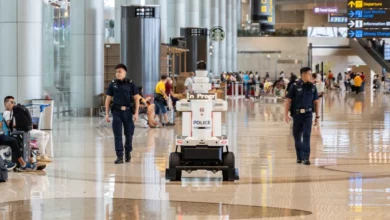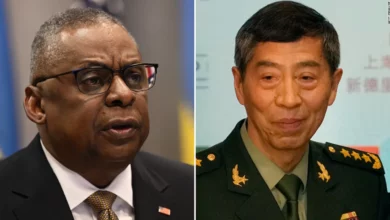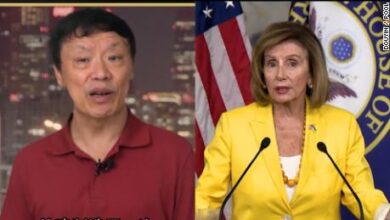
Singapore said on Friday it had canceled the permanent residence status of a professor at a prominent postgraduate school whom it identified as a US citizen, and accused him of being an agent of influence for a foreign country.
The Ministry of Home Affairs said Huang Jing, a professor of US-China relations at the Lee Kuan Yew School of Public Policy, “knowingly interacted with intelligence organizations and agents of the foreign country” with the aim of bringing about a change in the direction of Singapore’s foreign policy.
The ruling, which also applied to Huang’s wife, Shirley Yang Xiuping, means that if they leave Singapore, they will not be readmitted.
The ministry identified the couple as US citizens, but did not identify the country that Huang was alleged to have been working for.
A spokeswoman for the US State Department said it was aware of the Singapore announcement but declined further comment, citing privacy concerns.
China’s foreign ministry said Beijing had no knowledge of Huang’s case. “We don’t understand the relevant situation,” the ministry told Reuters in a statement
Hong Kong’s South China Morning Post newspaper quoted Huang as denying the allegations.
“It’s nonsense to identify me as ‘an agent of influence’ for a foreign country,” he said. “And why didn’t they identify which foreign country they’re referring to? Is it the US or China?”
Huang said he would seek help from his lawyer and the US embassy in Singapore.
“My family and my home are all here. I have property in Singapore, too. How can they treat me like this? If they have evidence, they should take me to court,” said Huang, who was not given a deadline to leave the island state.
The home affairs ministry charged that Huang had used his position at the Lee Kwan Yew school “to deliberately and covertly advance the agenda of a foreign country at Singapore’s expense.”
“He did this in collaboration with foreign intelligence agents,” it added.
The ministry said Huang and his wife could appeal, but if unsuccessful, would have to leave Singapore within a grace period.
The university said it had suspended Huang without pay while it worked with the ministry on the matter.
“As these permits have been canceled, we would not be able to continue with his employment,” it said in a statement, adding that it could not comment on the specifics of the case.
The ministry said Huang had engaged with prominent and influential Singaporeans, giving them what he claimed to be “privileged information” about the foreign country with which he was interacting.
Such information was passed to a senior member of the Lee Kuan Yew School, who conveyed it to the Singapore government, which declined to act on it, the ministry said.
Huang’s wife was aware of her husband’s actions and that he recruited others for his operations, it said.
Huang’s biography on the school’s website said he was previously a senior fellow at the John Thornton China Center at the Brookings Institution and had advised exiled Tibetan leaders on China affairs.
He is author of the books, “Factionalism in Chinese Communist Politics” and “Crisis and Challenges in US-China Relations.”
An opinion piece by Huang published in China’s Global Times this year titled “US domestic woes have global implications” said US President Donald Trump’s administration had eroded US power and soured relations with allies.
The column also said Chinese President Xi Jinping’s stress on economic globalization and multilateralism “shows China’s sense of reasonability as an emerging major power”.




